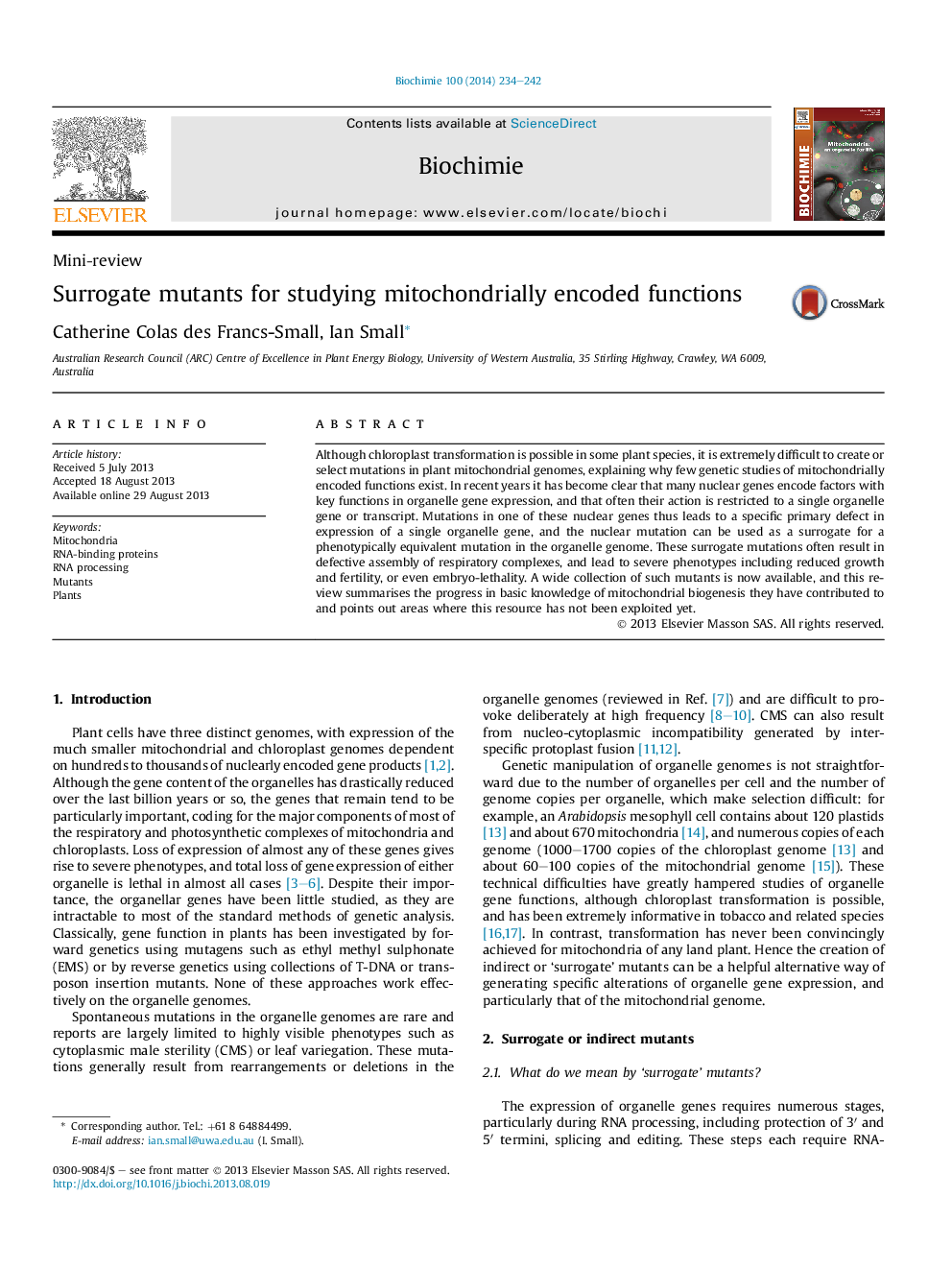| Article ID | Journal | Published Year | Pages | File Type |
|---|---|---|---|---|
| 8305592 | Biochimie | 2014 | 9 Pages |
Abstract
Although chloroplast transformation is possible in some plant species, it is extremely difficult to create or select mutations in plant mitochondrial genomes, explaining why few genetic studies of mitochondrially encoded functions exist. In recent years it has become clear that many nuclear genes encode factors with key functions in organelle gene expression, and that often their action is restricted to a single organelle gene or transcript. Mutations in one of these nuclear genes thus leads to a specific primary defect in expression of a single organelle gene, and the nuclear mutation can be used as a surrogate for a phenotypically equivalent mutation in the organelle genome. These surrogate mutations often result in defective assembly of respiratory complexes, and lead to severe phenotypes including reduced growth and fertility, or even embryo-lethality. A wide collection of such mutants is now available, and this review summarises the progress in basic knowledge of mitochondrial biogenesis they have contributed to and points out areas where this resource has not been exploited yet.
Related Topics
Life Sciences
Biochemistry, Genetics and Molecular Biology
Biochemistry
Authors
Catherine Colas des Francs-Small, Ian Small,
